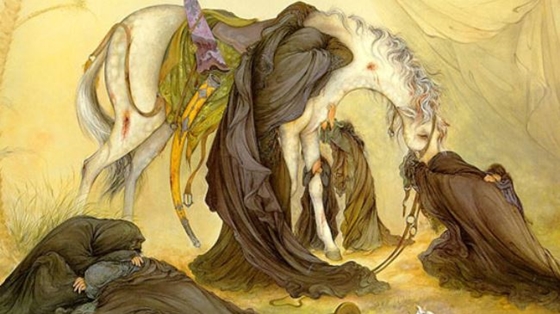The mourners take part in processions held in mosques and streets with different traditions to mark the martyrdom anniversary of Prophet Muhammad (PBUH)’s grandson Imam Hussein (PBUH) and his companions in Karbala.
Around 680 AD, Imam Hussein (PBUH) along with his 72 followers was massacred in the battle of Karbala in Iraq by the forces of the tyrant ruler of the time, Yazid, the second Umayyad caliph.
The mourning ceremonies reach their peak on the 9th day of Muharram, or Tasua, and the 10th day, or Ashura, when Imam Hussein (PBUH) and his companions were martyred.
Muharram ceremonies symbolize the eternal and unwavering stance of truth against falsehood and humanity’s struggle against tyranny, the cause for which Imam Hussein (PBUH) was martyred.
Shia rituals and observances on Ashura consist primarily of public expressions of mourning and grief such as beating one’s chest as well as beating one’s back with light chains to remind the mourners of the pain and suffering of Imam Hussein (PBUH) and his followers on that day.
Iranian people across the country traditionally cook and distribute charity food among their neighbors, family and the poor.
Ta’zieh is also among the rituals held in Iran during the Muharram mourning ceremonies. Ta’zieh, as an Iranian national and religious dramatic performance, recounts religious and historical events through poetry, recitation, music, songs and motion.
The traditional play narrates the story of the martyrdom of Imam Hussein (PBUH) and his companions in Karbala with its own specific style and rituals.
This Persian Passion Play was registered on the UNESCO list during the fifth session of the UN body’s Intergovernmental Committee in Nairobi, Kenya, in November 2011.
The tragedy of Ashura leaves a permanent mark on the soul of any free and compassionate spirit, regardless of religion or race.
